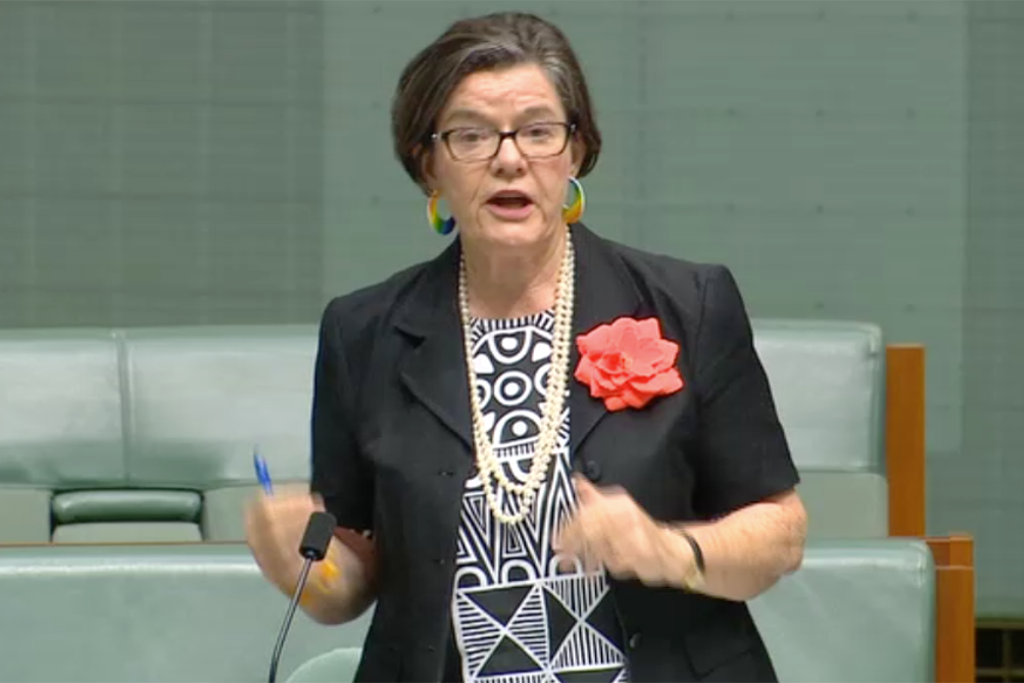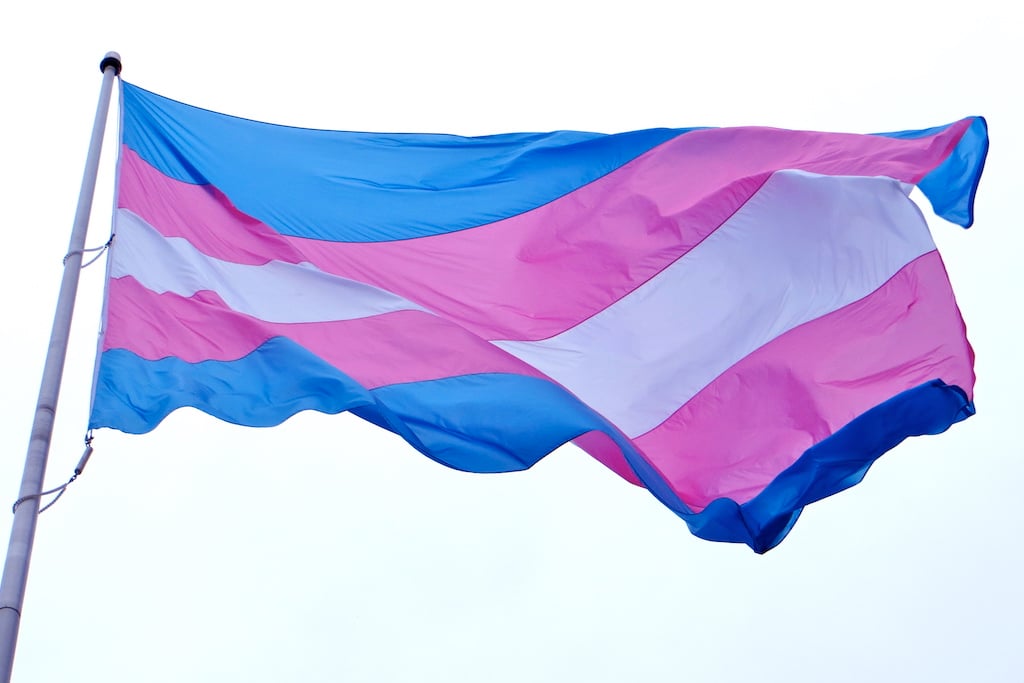This MP Used Her Marriage Equality Speech To Give Us All A Feminist Lesson On Gender

Throughout this entire postal survey process, few things have upset opponents of marriage equality more than the concept of non-binary gender. Even just over the past day of debate in Parliament, conservatives have stood up to tell us how gender fluidity will supposedly corrupt our kids, shatter religious freedoms, and destroy society as we know it.
Today, though, one MP stood in Parliament to directly challenge that notion. Cathy McGowan, the independent MP for the rural Victorian seat of Indi, used her speech on the marriage equality bill to gently educate her colleagues on the basics of respect for people who don’t identify within the gender binary, and she did a really great job.
Her words are a great primer for anyone who’s unfamiliar or uncomfortable with the idea of gender going beyond just male and female, and a pretty timely reminder that it’s possible to approach the unfamiliar with respect and consideration instead of fear-mongering and hatred.
Cathy McGowan is talking about non-binary gender identity and respecting preferred pronouns in the reps right now and it’s so incredible ??
— Sally Rugg ?️? (@sallyrugg) December 6, 2017
As McGowan put it, the marriage bill before the house is “not just about marriage equality”. “It’s actually about gender, and how we express gender in this community.”
“I’ve always been a feminist,” she said. “I’ve always struggled with what it was about me being a woman that made me different, why I couldn’t just be accepted without a gender attached. And it was a huge fight in my growing up not to be seen as a girl or a lady — I wanted to be seen as myself.”
McGowan said that while she has “come to understand that being a woman is my competitive advantage, and work with it”, her nieces and nephews helped open her eyes to the fact that for many people, that feeling of not wanting to be defined by a binary gender is different.
“One of the big things that my young people have taught me as this debate has gone on is that there’s such a thing as gender fluidity, it’s a spectrum,” she said.
“They said, ‘you know how you talk about he or she? Well ‘he’ are men, and ‘she’ are women, but some of us don’t fit those categories’.”
“My poor old mind went into overspin,” McGowan said with a laugh. “I thought, ‘but how can you not be he or she?’. And they took me through a journey, so today I can stand in this place and say that I get pronouns.”
She explained to the Parliament that some people use gender neutral pronouns, like “ze”, “ey” or they instead of “he” or “she”, and that some people change their pronouns over time.
“And now I’m much more tactful, I hope, and say to people who are gender-nondefined, ‘tell me your preferred pronoun? How would you like me to refer to you, as opposed to making the assumption that you’re male or female?'”
“For me,” she concluded, “this legislation is not only about same sex — it’s about two people, however they define themselves. And my learning, through this, is that it’s not up to me to do the definitions, it’s to respectfully ask the people I’m talking to.”
'Its not up to me to do the definitions but I respectfully ask them' @Indigocathy explains non-gender binary pronouns to Parli @lanesainty pic.twitter.com/9umyb0Ppyl
— ruth mcgowan (@hula_grl) December 6, 2017
And really, it’s as simple as that. The takeaway message from her speech was that respecting non-binary people can begin with something as easy as just asking someone how they would like to be referred to, and respecting that. It won’t end society, or corrupt children, or destroy religious freedom.
You can watch an excerpt from McGowan’s speech below. And if you’d like to learn more about non-binary gender, Twenty10 and The Gender Centre have great resource libraries full of information.
Here's @Indigocathy in Parliament today explaining pronouns, nonbinary gender, and the importance of listening to trans people pic.twitter.com/RRZCgKr67H
— sam langford (@_slangers) December 6, 2017
